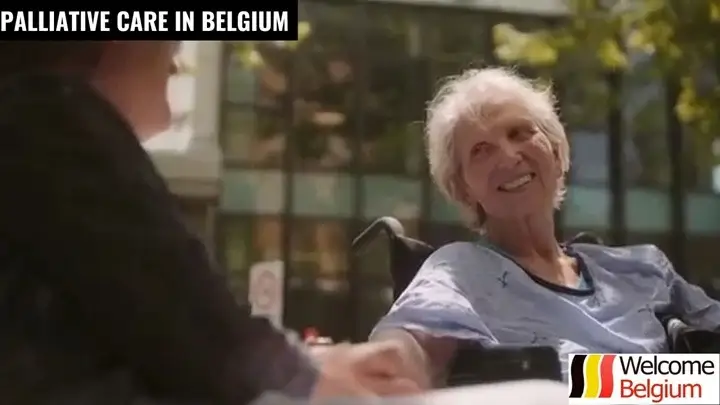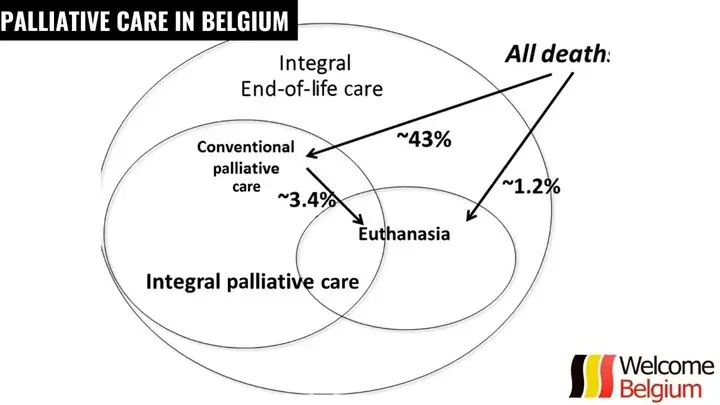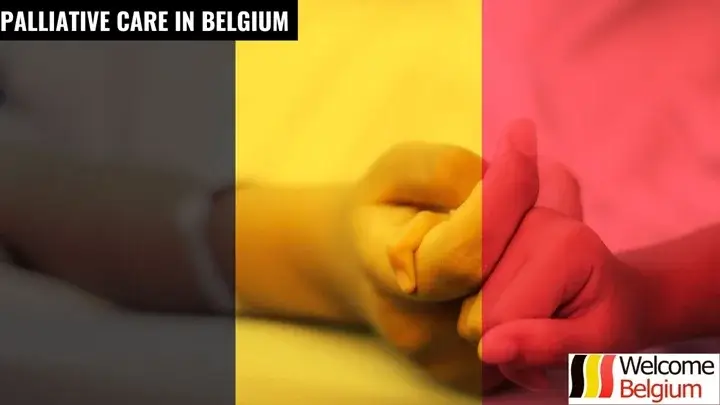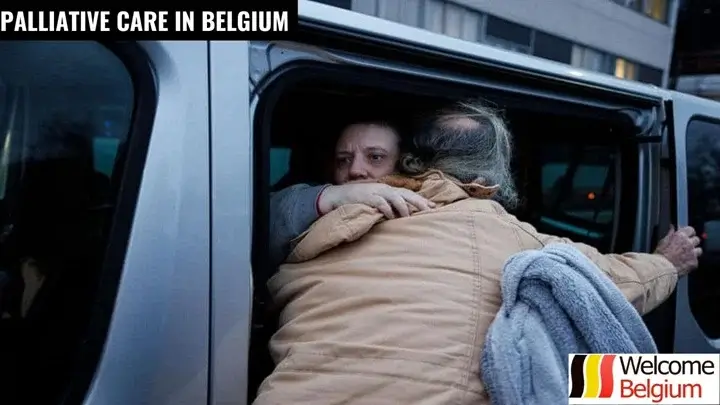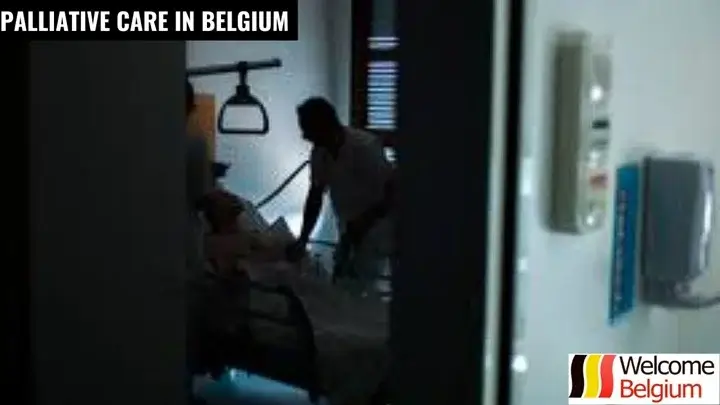Palliative care in Belgium is not just medical care, but a whole support system aimed at improving the quality of life of seriously ill people. Here, attention is paid not only to the patient’s physical condition, but also to his psychological, social and spiritual needs. This approach helps patients and their loved ones cope with a difficult stage of life with dignity and minimal suffering. In this article, we will look at how exactly palliative care is organized in the country, who has the right to it and where to turn for support.
What is palliative care
Palliative care is a special type of comprehensive care designed for people with incurable diseases. The main goal is not a cure, but rather improving the patient’s quality of life and reducing physical and emotional suffering. In Belgium, the palliative approach is used at all stages of the disease, both in hospitals and at home.
The goals of palliative care are:
- Relieving pain and other physical symptoms such as shortness of breath, nausea, fatigue and loss of appetite through a combination of medication and non-medication approaches.
- Support for the patient’s emotional state, including help with anxiety, depression and fear, often with the involvement of a psychologist or psychotherapist.
- Help in dealing with spiritual and existential issues, especially when the patient is faced with questions of the meaning of life, guilt or fear of death.
- Support for family members and loved ones, including psychological and informational assistance, training in care and counselling in difficult situations.
- Improving the quality of life regardless of the stage of the disease, by creating the most comfortable conditions and minimizing suffering.
- Respect for the patient’s personal beliefs, faith and wishes, including choice of place of care, participation in decision-making and refusal of unwanted procedures.
- Assistance in making complex medical decisions, including choosing between continuing active treatment and moving to supportive care.
- Providing palliative care in a comfortable and familiar environment – at home, in a hospice or inpatient setting, taking into account the needs and preferences of the patient.
Palliative care is not a refusal of help, but a conscious choice of care, respect and support at an important stage of life. It helps not only the patient, but also his or her loved ones. In Belgium, it is recognized as an important part of the health care system and is available to all who need it.
Interesting fact: in Belgium, palliative care is officially funded by the state and can be provided free of charge with a referral from a doctor.
How palliative care works in Belgium
The palliative care system in Belgium is based on a comprehensive approach and is provided by both state and non-profit structures. Services are available in hospitals, outpatient clinics and at home. The main goal is to give the patient the opportunity to receive quality support in a familiar and maximally comfortable environment.
Structure of palliative care in Belgium:
- Hospital palliative care is provided in specialized departments or wards at hospitals. Teams with specialized training work there. Patients receive pain relief, psychological assistance, and full medical care.
- Home palliative care allows the patient to remain in a familiar environment near family. Health workers come to the home, conduct examinations, give recommendations, provide medications and support relatives.
- Mobile palliative care teams (équipes mobiles) are interdisciplinary groups of doctors, nurses, psychologists and social workers who provide consultation and support to both patients and medical staff in other institutions.
- Outpatient consultations are available in medical centers and specialized offices. They are often used early in the course of the disease to determine the appropriate palliative care plan.
- State programs in Belgium provide free or partially paid palliative care services. The patient or his relative only needs to contact the attending physician or social worker.
- Non-profit organizations, including the Palliative Care Federation, local associations and charities are actively involved in organizing care. They help organize volunteer support, transportation and spiritual care.
- The system is coordinated at the regional level. Each region of Belgium (Flanders, Wallonia, Brussels) has its own centres and services that regulate standards and ensure quality control of services.
In Belgium, palliative care is organized clearly and professionally. Patients can choose the format that is most comfortable for them – hospital, home or a combination of both. All services work in coordination to provide maximum support at every stage.
Important: In Belgium, a patient has the right to receive free palliative consultation and care if they have a life-threatening diagnosis, regardless of age or social status.
Who is eligible for palliative care?
Palliative care in Belgium is available not only to patients with terminal illnesses, but also to those suffering from chronic illnesses that require long-term and complex care. It is important to note that priority in receiving palliative care is given to patients suffering from incurable illnesses, especially in the later stages, as well as to people with limited life opportunities.
Who is eligible for palliative care:
- Patients with terminal cancer. This is the main group that seeks palliative care in Belgium.
- Patients with dementia and other neurological diseases, such as Alzheimer’s disease. They need support at all stages of the disease.
- People with chronic and rare diseases such as cardiovascular diseases, respiratory diseases, chronic renal failure, which also require long-term and continuous care.
- Patients with mental disorders if these diseases are accompanied by severe functional impairment, impairment of social adaptation or vitality.
- Children suffering from incurable or progressive diseases. Palliative care is also provided to children if the disease makes their normal existence difficult and requires long-term care.
- There are age restrictions, but palliative care is provided to both adults and children, regardless of age, if it is related to medical indications.
- Belgian law does not limit access to palliative care by age, as long as the disease is not treatable and requires ongoing care. Article 57 of the Federal Health Act of 2002 specifies that all citizens who need help with a life-threatening illness have the right to palliative care.
Palliative care is available to every patient suffering from a terminal illness, regardless of age. Belgium has a legal framework for providing these services, ensuring that quality care is available to people with different needs.
Important: In Belgium, palliative care can be provided without age restrictions if there is a medical need and confirmed indications.
Euthanasia and palliative care
In Belgium, euthanasia and palliative care are regulated by law, allowing patients suffering from incurable diseases to make decisions about their future. Belgian law allows patients to have the right to euthanasia, but palliative care remains an integral part of end-of-life care. Euthanasia and palliative care can be combined, but this raises debates among doctors and society about the ethics of such decisions.
Features of the legislation on euthanasia:
- In Belgium, euthanasia has been legal since 2002, subject to certain legal and medical criteria. Euthanasia may only be carried out if the patient is terminally ill or suffering from unbearable pain, and if he or she expresses a clear and persistent wish to die.
- Euthanasia is possible only at the patient’s request, which must be explicit, free and confirmed by written consent. This is important to exclude accidental or unconscious requests.
- When performing euthanasia, two doctors are required: one assesses the patient’s condition and suffering, and the other confirms that all legal requirements have been met.
- The euthanasia law in Belgium also allows euthanasia in cases where the patient is unable to give consent due to mental or neurological illness, but this must be considered in a strict legal and ethical context.
- Physicians working with patients considering euthanasia should be aware of the legal and ethical issues involved and ensure that palliative care is available as an alternative if the patient decides to change his or her mind.
- Palliative care in Belgium continues to operate even in cases where the patient decides to undergo euthanasia, allowing them to receive help and support at every stage.
Euthanasia and palliative care in Belgium are subject to a clear legal and ethical framework. Despite the possibility of euthanasia, palliative care remains an important part of the care process, providing patients with a choice according to their wishes. Medical ethics require that each patient is fully informed about their options.
Important: In Belgium, palliative care is always a priority, even if the patient decides to exercise the right to euthanasia.
Funding and availability
Palliative care in Belgium is financed through several sources, making it accessible to most patients. Both public programmes and private health insurance play an important role in providing such care. However, difficulties may arise at some stages due to a lack of staff or places in specialized institutions, which affects the availability of the service in different regions.
Sources of funding for palliative care in Belgium:
- Public funding. In Belgium, the main role in covering the costs of palliative care is played by the public health system, which provides funds for end-of-life care services.
- Health insurance. Most Belgians have compulsory health insurance, which covers a significant part of the costs of palliative care. Insurance companies may also offer additional packages to improve the quality of care.
- Private clinics. In some cases, especially for foreigners, the cost of palliative care may be covered by private health insurance companies or by the patients themselves if they choose private clinics.
- Local authorities: Some regions in Belgium have their own subsidy and financial support programmes for patients in need of palliative care, which reduces the financial burden on families.
- Funding from charities. In some cases, charities and non-profits can help cover the costs of palliative care, especially for low-income groups.
- Free assistance. For certain categories of the population, such as the elderly or people with disabilities, palliative care can be provided free of charge under government programs.
Despite the availability of palliative care in Belgium through various funding sources, problems with staffing and capacity in specialized institutions may still arise, especially in areas with high population density. It is important that patients are informed about the available care options and funding conditions. It should also be remembered that the choice of funding type may affect the quality and availability of services.
Important: For foreign citizens in need of palliative care in Belgium, it is important to familiarise yourself in advance with the conditions for receiving services and the possibilities for their financing.
The role of family and volunteers
The role of the family in caring for patients in need of palliative care is extremely important. Relatives are often the main helpers in providing support, psychological comfort and performing daily duties. Volunteers also play an important role in providing emotional support and helping with practical issues, which eases the burden on the family. The importance of proper training and support for relatives in the process of caring for a loved one cannot be underestimated.
The role of family and volunteers in palliative care:
- Emotional support. Relatives play a key role in providing emotional support to the patient, creating conditions for his psychological comfort.
- Caregiving training: Families receive caregiving training from health professionals, enabling them to better manage home care.
- Practical assistance: Relatives often take on daily care responsibilities, such as assistance with mobility, personal hygiene, and meal preparation.
- Family strain: Caring for someone who is sick can be emotionally and physically draining for relatives, sometimes leading to burnout.
- Volunteers help not only in organizing leisure and social activities for the patient, but also provide moral support to the family.
- Support for caregivers: Belgium has programmes that offer assistance to relatives caring for sick people, including training, psychological support and care breaks.
- Volunteer training: Volunteers receive training in palliative care, which helps them interact more effectively with patients and families.
Families and volunteers play an invaluable role in the care of patients in palliative care, providing not only physical care but also emotional support. Education of relatives and volunteers is essential to improve the quality of care and reduce stress for all involved. It is important that family carers receive all the necessary information and support, allowing them to continue to care for their loved ones with respect and dignity.
Tip: Regularly communicating with professionals and participating in caregiver support programs can help prevent burnout and improve the quality of care.
How to get palliative care in Belgium
Receiving palliative care in Belgium is a process that requires some preparation from the patient or their representatives. There is a clear step-by-step procedure for applying for assistance, including contacting specialists, preparing the necessary documents and, possibly, obtaining insurance. It is important to consider that assistance is available not only to Belgian citizens, but also to foreigners and migrants, which significantly expands the availability of care.
Stages of receiving palliative care in Belgium:
- Contacting a doctor. The first step is to consult with a doctor who will determine the need for palliative care and refer you to a specialist service.
- Selecting the type of care. Based on the consultation, the patient is referred to a hospital, outpatient or home care, depending on the condition.
- Preparation of documents. A medical certificate confirming the diagnosis and the need for palliative care is required.
- To receive the service, you usually need health insurance. If you don’t have it, you can turn to government programs.
- Registration with local services. The patient or their relatives register the request with the local palliative care services.
- Registration of assistance for migrants and foreigners. Foreigners can receive assistance if they have a residence permit and health insurance, or if they have certain agreements with local authorities.
- Nonprofit Involvement: Some nonprofits can also help with services and provide additional support.
Palliative care in Belgium is available to both Belgian and foreign citizens, provided that the necessary requirements are met. It is important to go through all the registration steps correctly to ensure the necessary care at all stages of the disease. There are also programs that support migrants and people without insurance, making the system more accessible.

